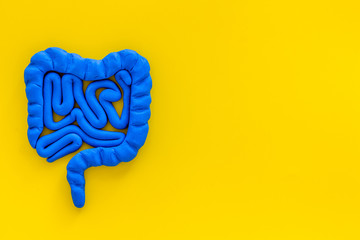
The meconium, a newborn infant’s first stool, contains a rich diversity of bacterial species. Observational studies show that newborns from distressed mothers differ in terms of the frequency of bacterial species in their meconium. Differences in gut bacteria are associated with health in adults, and these differences could also play a role in newborn development.
Zhang et al. [Psychoneuroendocrinology] tested the effect of a mindfulness-based intervention on distress among pregnant mothers reporting elevated distress and examined their newborn infants’ meconium bacteria.
The researchers randomly assigned 160 distressed pregnant women in Shandong Province, China (mean age = 30 years) to either prenatal care as usual or prenatal care plus a 6-week mindfulness-based intervention. The women were classified as distressed based on baseline cut-off scores on self-report measures of anxiety and depression.
Mindfulness training was delivered individually over six weeks via a WeChat cellphone app. On the first day of each of the six weeks, the women viewed a 10 to 20-minute pre-recorded introduction to the topic of the week. On the following six days of each week, they engaged in 10-30 minutes of formal and informal theme-related mindfulness practices.
Themes included an introduction to mindfulness, awareness of present-moment experience, identifying avoidances, automatic vs. mindful responding, and mindfulness in childbirth. Meditation exercises were like those in Mindfulness-Based Stress Reduction (MBSR).
Maternal anxiety and depression self-report scores were collected at post-intervention. Stool from infant bowel movements during their first 48 hours after delivery were collected by maternity ward staff and sequenced for bacterial DNA identification.
There are two types of measures of bacterial diversity in stool samples: alpha and beta diversity. Alpha diversity is a measure of biodiversity within a single sample, whereas beta diversity is a measure of the similarity or dissimilarity of two samples.
Post-intervention results showed significantly lower average anxiety and depression self-report scores among women in the mindfulness compared to the control group. The study groups did not differ in stool alpha diversity.
Significant differences emerged by group, however, in stool beta diversity. Specifically, infant stools in the mindfulness group had higher levels of Bifidobacterium and Blautia, while infant stools from control mothers had higher levels of Staphylococcus.
The study shows that a mindfulness intervention for psychologically distressed pregnant women raises the level of “healthy” bacteria in their newborn infants’ gut systems Studies show Bifidobacterium levels are associated with neuropsychological development in children, and Blautia levels are shown to be lower in depressed adults.
The study is limited by its measuring stool meconium bacteria at only one time point, and the DNA sequencing method used could not correlate specific bacterial strains with maternal psychological variables.
Reference:
Zhang, X., Mao, F., Li, Y., Wang, J., Wu, L., Sun, J., & Cao, F. (2022). Effects of a maternal mindfulness intervention targeting prenatal psychological distress on infants’ meconium microbiota: A randomized controlled trial. Psychoneuroendocrinology, 145, 105913.
Link to study